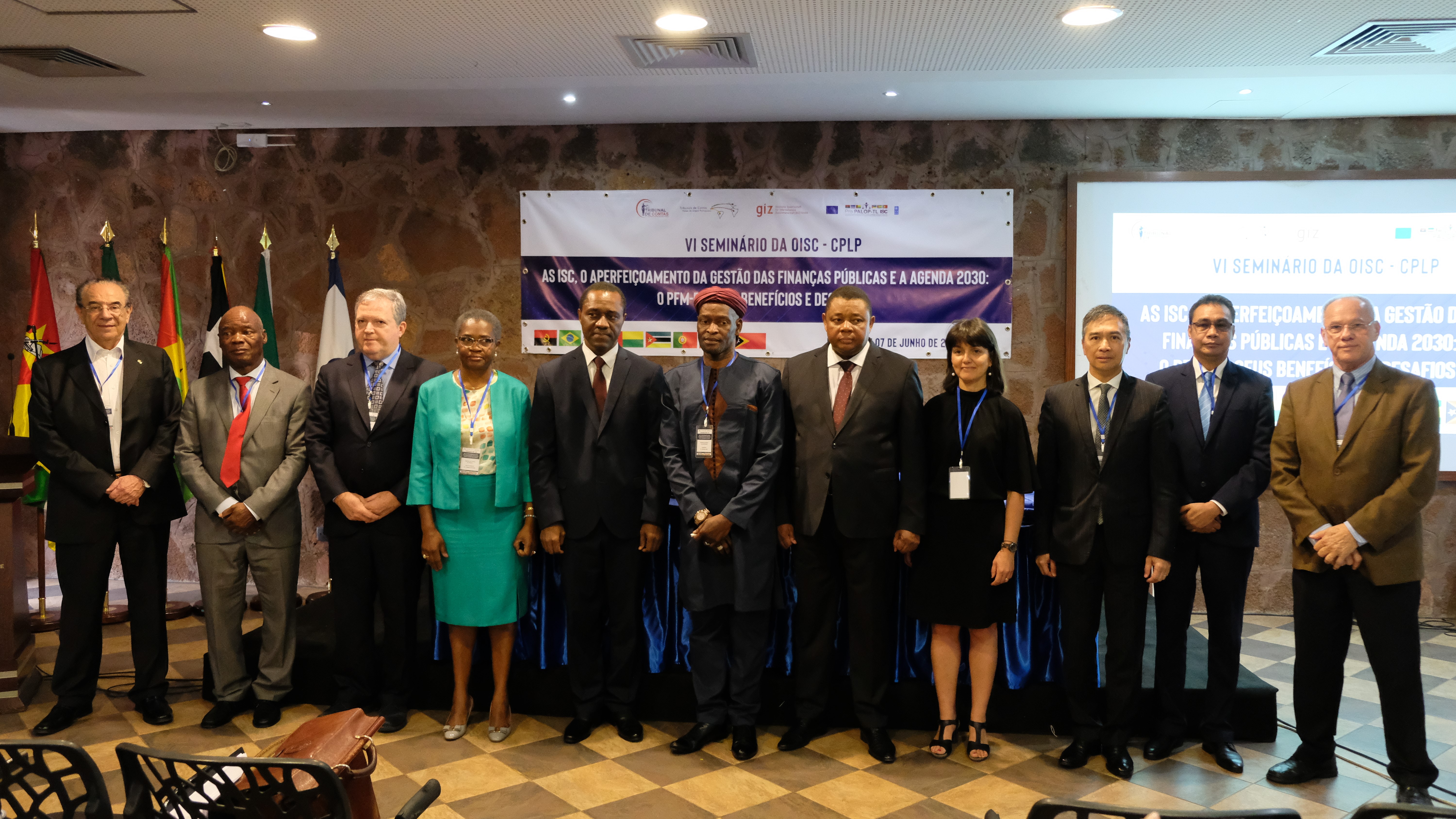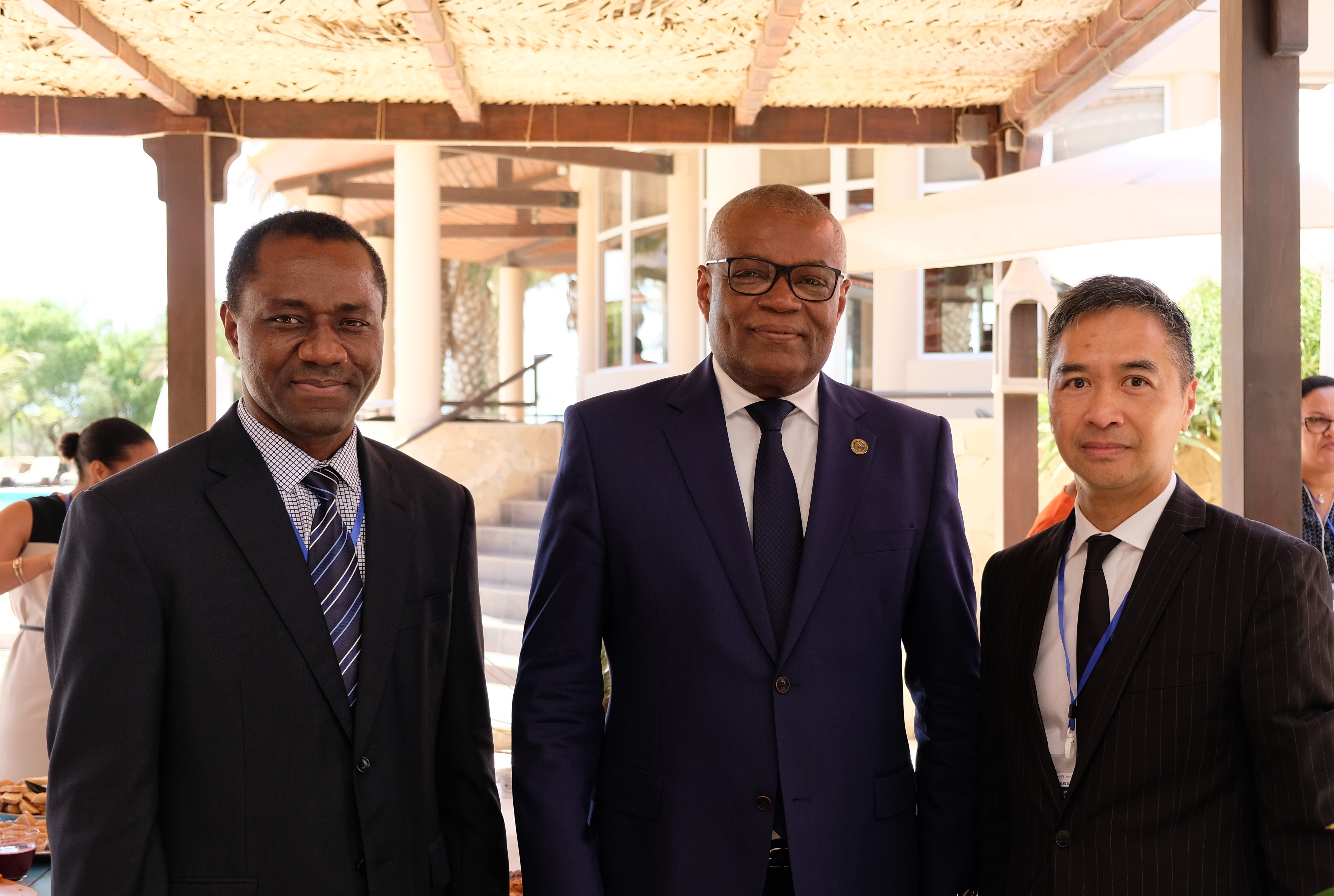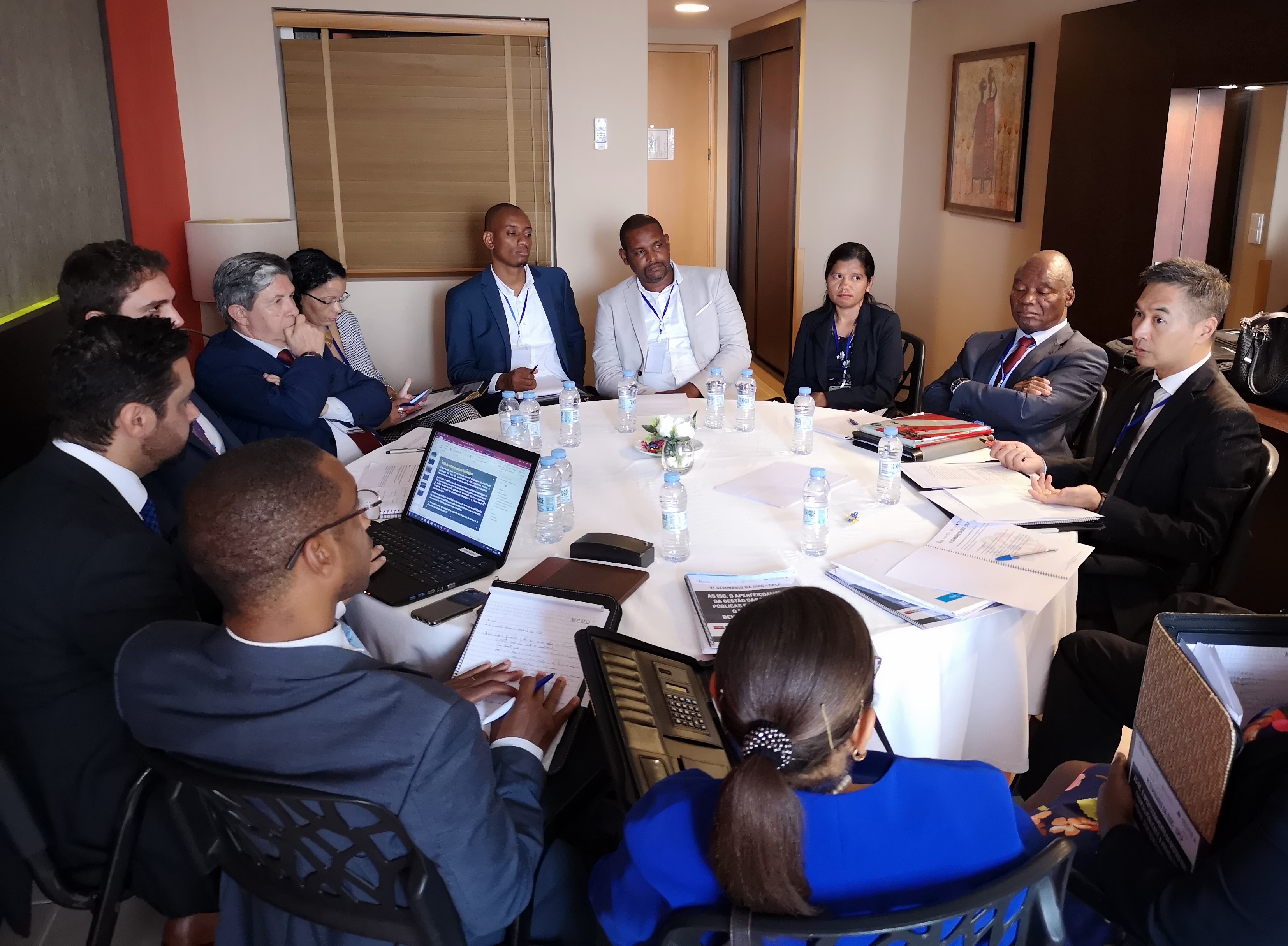The 6th Seminar of the Organization of Supreme Audit Institutions of the Community of Portuguese Speaking Countries (OISC/CPLP) was held in Praia, the capital of Cape Verde from 5 to 7 June. The Commissioner of Audit, Ho Veng On, on behalf of the Commission of Audit of Macao SAR Government (CA), attended the seminar as an observer. The theme of this seminar was “The improvement of Supreme Audit Institutions (SAI) and the public financial management as well as the 2030 Agenda: the benefits and challenges of the Public Financial Management Reporting Framework (PFM-RF)”. The President of the National Assembly of Cape Verde, Jorge Santos, attended the opening ceremony and delivered a speech.
At the seminar, Ho Veng On and other representatives exchanged views on the theme and pointed out that as an observer of OISC/CPLP, although he only has a basic understanding of this public financial management reporting tool, he agrees that it is a timely measure to supervise the implementation of the external audit of the 2030 Agenda. In fact, the purpose of this tool is to incorporate the good public financial governance that is the goal of the 2030 Agenda into the public financial management system of each country ─ budget, public accounting, and the management of treasury, property and public debt ─ through the respective currencies or capital flow we can assess the implementation of sustainable development goals and related national plans.
Related to the role of SAIs in the promotion of national good governance, Ho Veng On quoted the saying of the Auditor General of the China National Audit Office, Hu Zejun, who emphasized that SAIs have the responsibility to require their auditors to have the professional preparation seriously and high level professional knowledge, in order to respond to the increasingly high expectations for government auditing, for example the work of 2030 Agenda. Auditor General Hu Zejun also believed that strengthening the collaboration between the stakeholders is extremely important to promote the national good governance and audit results, especially geting the support, understanding and cooperation from the legislature, media and the public in the work of SAIs.
In the experience sharing session, Ho Veng On introduced the Macao situation to the members of OISC/CPLP and pointed out that the work of public financial management in Macao is basically regulated by the Budget Framework Law and a series of ancillary legislation; and it is monitored by the Legislative Council (political) and the CA (financial). In principle, the statutory and functional aspects of Macao public financial management also correspond with the requirements of good financial governance: (a) budgetary discipline / sustainable finance, external supervision, independence; (b) the budget is in line with the public policy priorities; (c) public financial management would ensure that the public services (expenditure) can be effectively implemented within the allocated resources (revenue).
According to the discussion results, the delegation members unanimously adopted the “Praia Declaration”, which reaffirms the commitment to optimize the public financial management for the achievement of 17 sustainable development goals and to promote the application of the public financial management reporting tool developed by the German International Cooperation Agency and the United Nations Development Programme.
There were more than 80 people attended this seminar, besides the Macao representatives, they were the representatives from the SAIs of Angola, Brazil, Cape Verde, Guinea-Bissau, Mozambique, Portugal, Sao Tome and Principe as well as East Timor; moreover, the representatives from the INTOSAI Development Initiative of INTOSAI, and its two observers, as well as the Association of the Members of the Brazilian Courts and the Rui Barbosa Institute.




